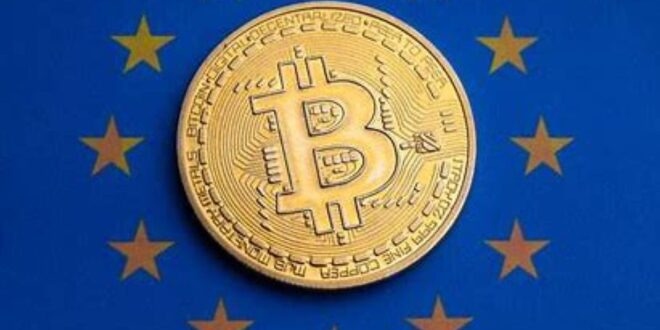The European Union’s latest move against cryptocurrency has ignited controversy, as Google rolls out a sweeping ban on crypto-related advertisements across the region. The ban, which affects both paid search ads and display ads across Google’s platforms, marks the latest in a series of regulatory measures aimed at controlling the growth of the digital asset space in Europe.
While the EU has long expressed concerns about the risks associated with cryptocurrencies—ranging from fraud and money laundering to investor protection—the new ban represents a much more aggressive approach. The move comes at a time when the EU is grappling with the challenge of keeping pace with global developments in digital finance while trying to protect consumers from potential risks.
Google’s ad ban has sparked outrage within the crypto industry, with many arguing that the action will stifle innovation and hinder the adoption of blockchain technologies that have the potential to reshape the financial sector. Industry players have expressed frustration, claiming that the move effectively isolates European crypto projects from global visibility, further pushing the region to the sidelines in the global race for blockchain and crypto development.
“Crypto has been hit with another blow, and this time it’s Google, one of the most influential companies in the world, pulling the rug out from under us,” said a spokesperson for a leading European blockchain startup. “This ban is not just a setback for crypto companies looking to grow and expand, but also for the EU’s position in the global blockchain revolution.”
While some regulators argue that the ban is necessary to prevent crypto scams and protect consumers from falling victim to fraudulent schemes, critics argue that it may have unintended consequences. Many point out that this approach could drive cryptocurrency activities underground, where it becomes even harder for regulators to monitor and control the industry.
Europe has already seen a split in its approach to crypto regulation. While countries like Switzerland and Malta have embraced cryptocurrency and blockchain innovation, others, like France and Germany, have taken a more cautious stance. The EU’s aggressive posture, led by concerns over consumer protection and anti-money laundering regulations, risks alienating European tech innovators and investors, potentially causing them to shift operations to more crypto-friendly regions, such as Singapore or Dubai.
The timing of the Google ad ban is especially contentious, as it coincides with mounting pressure within the EU to develop a comprehensive regulatory framework for digital assets. The European Commission is currently working on the Markets in Crypto-Assets (MiCA) framework, which aims to provide clarity and security for crypto investors while ensuring a balance with necessary oversight. However, the ad ban undermines these efforts by restricting marketing channels for crypto businesses, making it more difficult for them to operate and grow within the EU.
Despite the clampdown, some in the crypto community see this as a challenge that could ultimately spur innovation. Blockchain entrepreneurs are calling for greater decentralization and are exploring alternative methods of marketing and community building, including social media platforms, direct partnerships, and decentralized finance (DeFi) networks.
“If the EU is going to tighten the screws, it could force crypto to become more resilient and find new ways to thrive,” said a blockchain researcher. “But the bigger question is whether Europe will continue to fall behind other regions in the crypto space, or if it will adapt and find a way to regulate and foster innovation at the same time.”
For now, the crypto struggle in the EU continues, as startups, investors, and blockchain advocates wrestle with the future of digital finance in a region that is becoming increasingly hostile to the very technologies it once aimed to regulate.
 Business Sandesh Indian Newspaper | Articles | Opinion Pieces | Research Studies | Findings & News | Sandesh News
Business Sandesh Indian Newspaper | Articles | Opinion Pieces | Research Studies | Findings & News | Sandesh News



